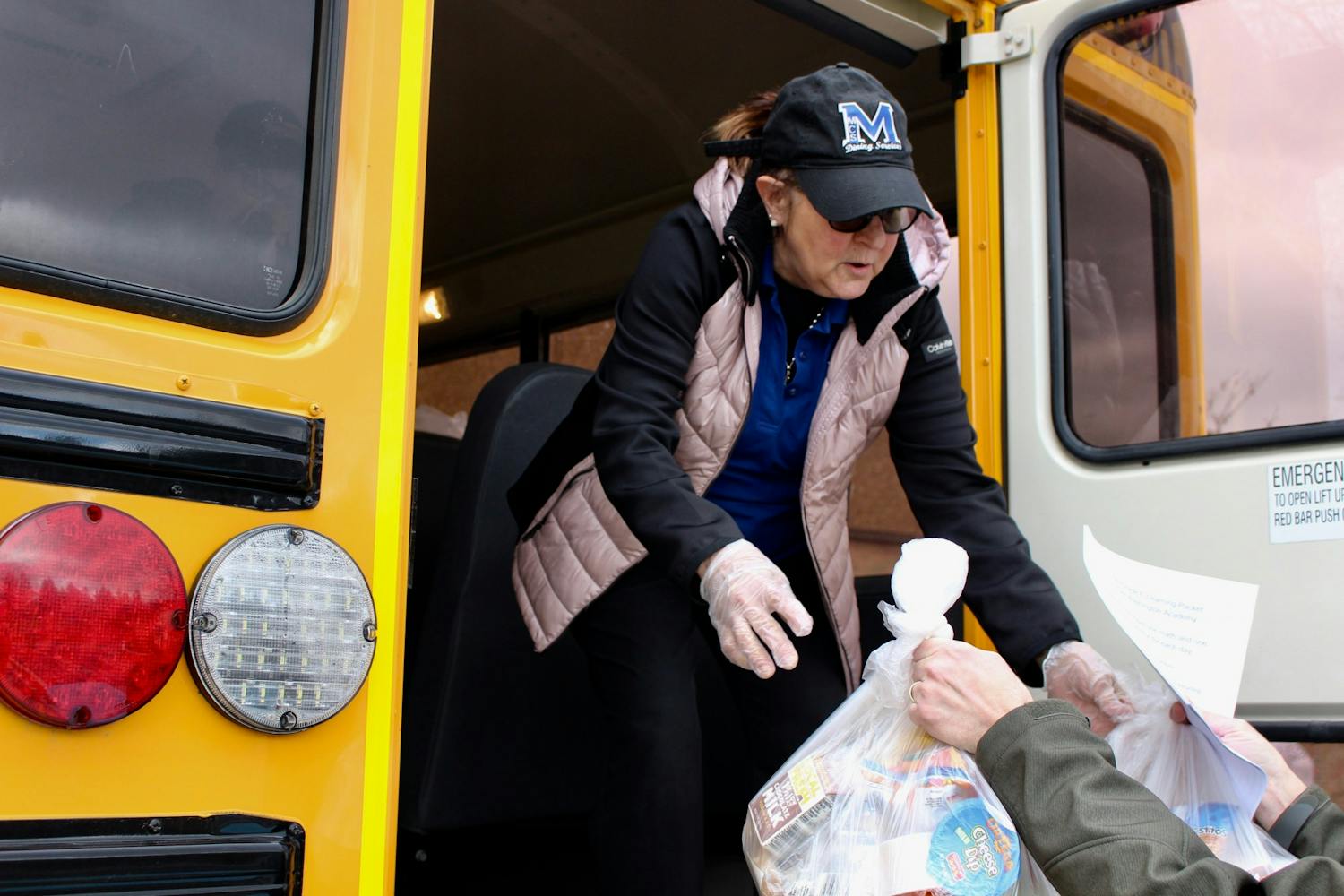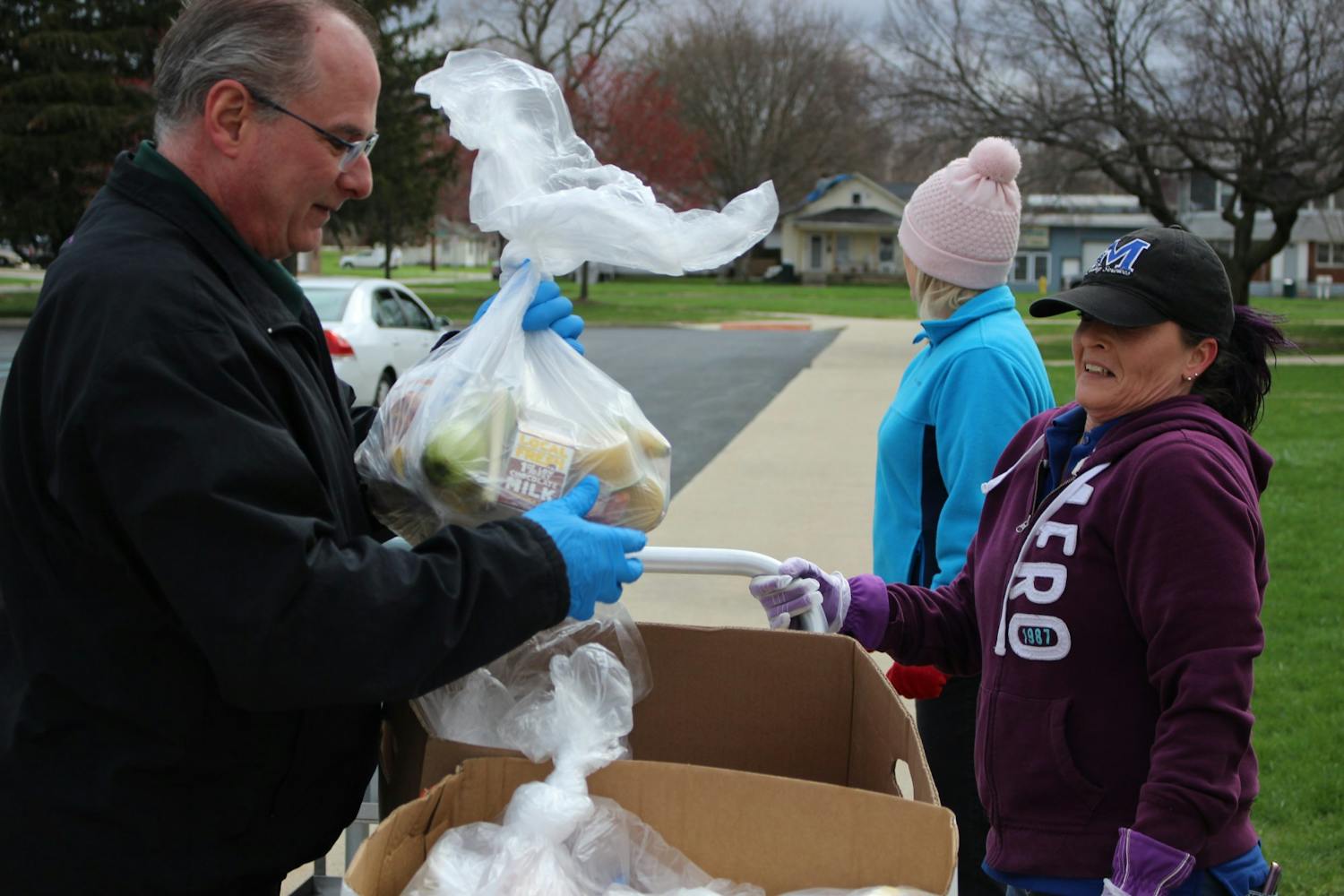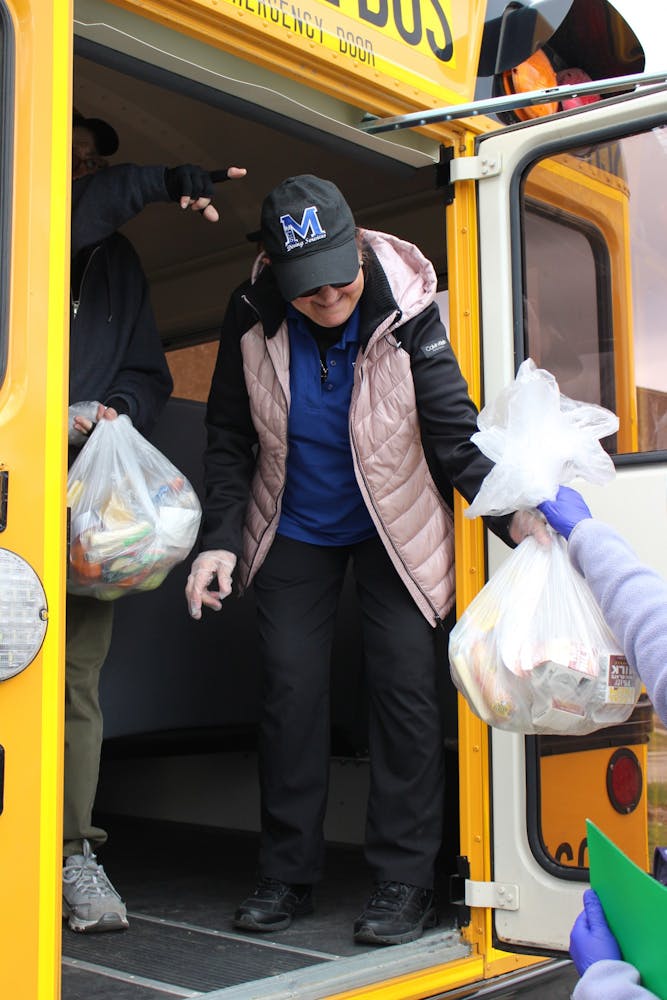Muncie Community Schools distributes breakfast and lunch meals at four locations daily and at 22 locations every Monday.
Editor's Note: This story is part of The Partnership Project, a series of content written in an effort by The Daily News to follow the formal collaboration of Ball State University and Muncie Community Schools. Read more in this series here.
While she doesn’t mind having her kids at home, Angelica Lucio said having to feed them extra meals because they’re not in school due to the statewide K-12 school closure “is a lot.”
Amid the global COVID-19 pandemic and the measures taken to limit its effects, the Muncie Community Schools (MCS) free meals distribution program is something Lucio finds helpful.
Although making sure that her family has enough food hasn’t necessarily been hard, Lucio said, the food banks she usually goes to have been packed with people due to the ongoing pandemic.
“That has been kind of rough for us,” she said. “This kind of covers some of the stuff where we would have to try to get to a food bank if we needed to. It’s just nice to not have to worry about it.”
Lucio said she was grateful there are many people who still help out when they don’t have to be there — making sure students get education through learning packets and e-learning and helping parents out when things are chaotic.
“It’s a great thing,” she said. “It’s very humbling and it’s good to know that we have people who still care about making sure everyone is OK.”
Throughout the school closure, which lasts until at least May 1, MCS will be distributing 10 free meals — five lunches and five breakfast meals — to its students each week. It has four locations where they distribute meals everyday and 22 locations where school buses distribute food every Monday.
Stephanie Fegan, resident district manager of Chartwells, the food service provider for MCS, said last week her team prepared 40,000 meals and served 32,000 meals. She said they have been distributing more food after the closure than the regular school year.
The meals that aren’t distributed are given to local YMCA, churches, shelters and different communities that have children, Fegan said.
“It’s been amazing, just knowing that we’re able to give back and we’re able to make sure that our students that we see everyday have the opportunity to have food,” she said.
Chartwells employees aren’t required to come to work if they need to be with their families. Fegan said they take all the necessary precautions — wash their hands, wear gloves, have wipes on every bus and maintain social distancing when prepping meals.
“I just want everyone to know that we’re super grateful, we are here on the front lines and we’re going to be here,” she said. “It does take a village — all of us coming together. It’s just been super humbling to see everyone come together and to see what everyone can do when a crisis happens.”
Logistically, she said it’s a little different from what Chartwells does during the regular school year — condensing what its team distributes over a week to sending out food all at once on a Monday.
For Iry Hogan, a local pastor and a bus driver for Auxilio which runs MCS buses said helping out the community is a “privilege” and “a great opportunity for us to come together and show unity in the community.”
“Sometimes we get to doing our daily activities and we forget about each other,” Hogan said. “It’s a time when we get to come together and show that we care for one another.”
Hogan, who was born and raised in Muncie, said he has seen the Muncie community come together before, but never with such magnitude as during the COVID-19 pandemic.
“I just want to thank the community for coming together and being a support to each other at a time like this. It’s much needed,” he said. “I’m just glad to be a part of that help and glad to see that everybody that can [is helping] and the willingness to help.”
Lucio said she used to live in East Chicago, where she said people were hesitant to help one another. In Muncie, she said a majority of the community welcomes them and helps them “with open arms.”
“We’ve hit some rough patches in some situations, [but] the people in the community have really showed out for us and really helped a lot,” she said. “I’m very very grateful. It’s why we’re still here. I can’t see myself being anywhere else.”
Contact Rohith Rao with comments at rprao@bsu.edu or on Twitter @RaoReports.










